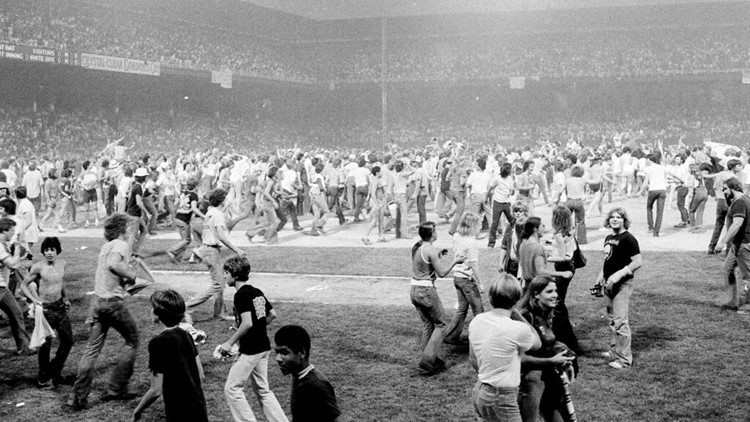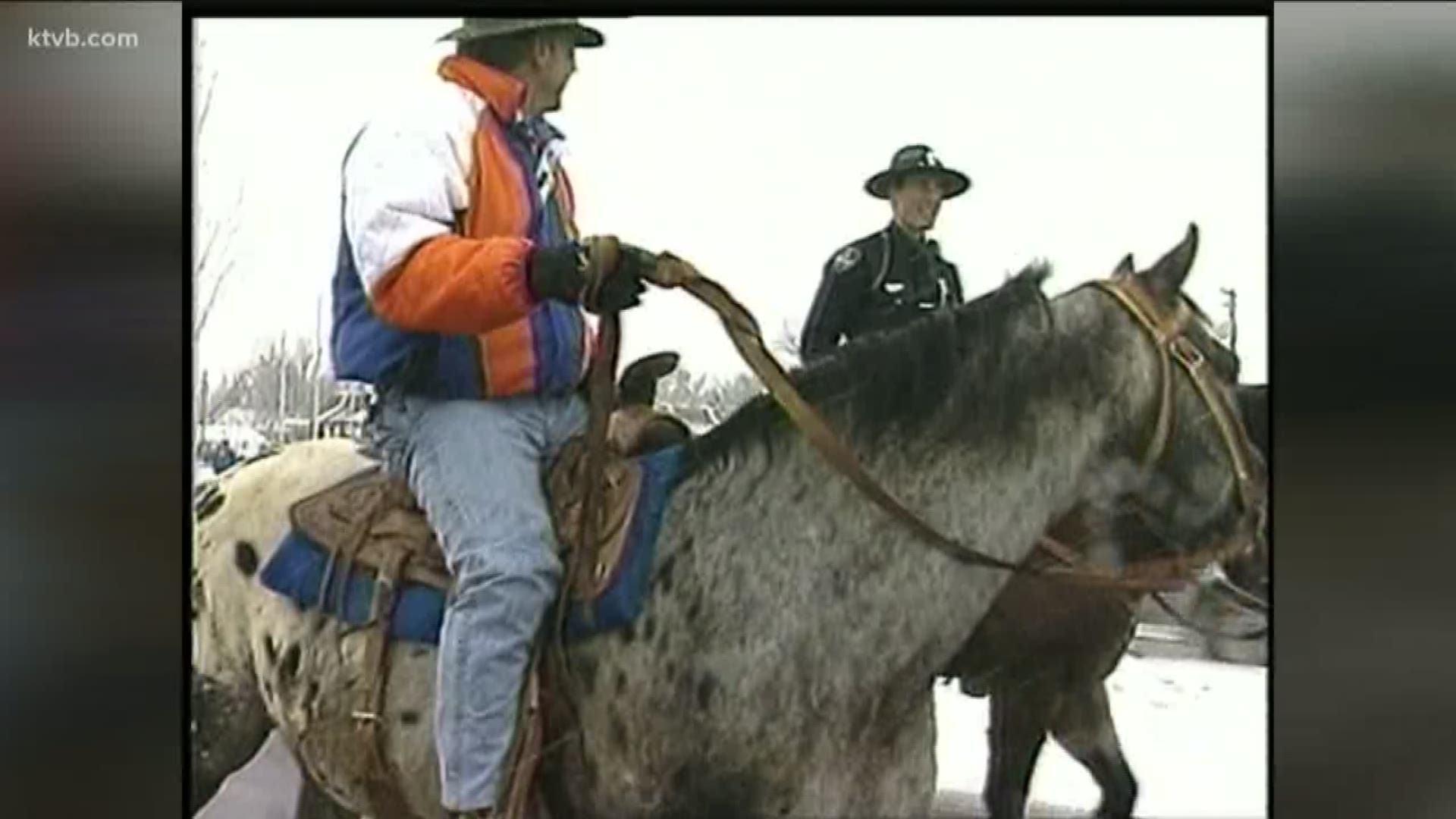BOISE, Idaho — THIS DAY IN SPORTS — July 12, 1979:
It’s “Disco Demolition Night” at Chicago’s Comiskey Park. Fans got in for 98 cents if they brought a disco record to burn between games of a doubleheader between the White Sox and the Detroit Tigers. Comiskey had been drawing only 15,000 fans per game that season, but more than 50,000 turned up to see the spectacle that evening. A crate of disco records was blown up, damaging the playing surface — and when fans rushed the field and refused to leave after the bonfire, the second game of the twin bill was forfeited to the Tigers. The crowd was finally dispersed by riot police.
Bill Veeck was the White Sox owner at the time. Veeck was known for being a promotional genius throughout his career as an owner with the White Sox, Cleveland Indians and St. Louis Browns. But Disco Demolition Night was largely the brainchild of his son, Mike, who was the Sox promotions director, and Chicago disc jockey Steve Dahl. Many thought the stunt contributed to the demise of disco as a music genre, but it was already on the decline.
The senior Veeck’s most renowned stunt came in 1951 when he owned the Browns. In a game against the Tigers, Veeck sent midget Eddie Gaedel to the plate, standing 3’7” and sporting jersey No. 1/8. Detroit pitcher Bob Cain subsequently had trouble finding the strike zone and walked Gaedel on four pitches. He trotted to first base while bowing to the crowd and was promptly replaced by a pinch runner. Veeck also allowed fans to vote from the stands on strategic moves, moved outfield fences in and out from game to game, introduced baseball’s first exploding scoreboard and had his players wear shorts.
Perhaps Veeck’s greatest accomplishment wasn’t a stunt at all. In 1947, he signed Larry Doby to a contract with Cleveland, and less than three months after Jackie Robinson broke Major League Baseball’s color barrier in the National League, Doby became the American League’s first Black player. When Doby was introduced to his teammates in the clubhouse, three players refused to shake his hand. Veeck eventually purged his squad of all three players. In 1948, Veeck signed Negro Leagues star Satchel Paige, making him the oldest rookie in big league history at the age of 41.
(Tom Scott hosts the Scott Slant segment during the football season on KTVB’s Sunday Sports Extra. He also anchors four sports segments each weekday on 95.3 FM KTIK and one on News/Talk KBOI. His Scott Slant column runs every Wednesday.)
Watch more Sports:
See all of our sports coverage in our YouTube playlist:



